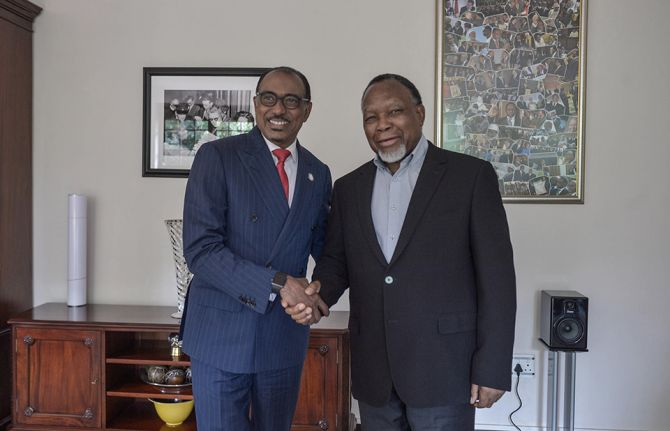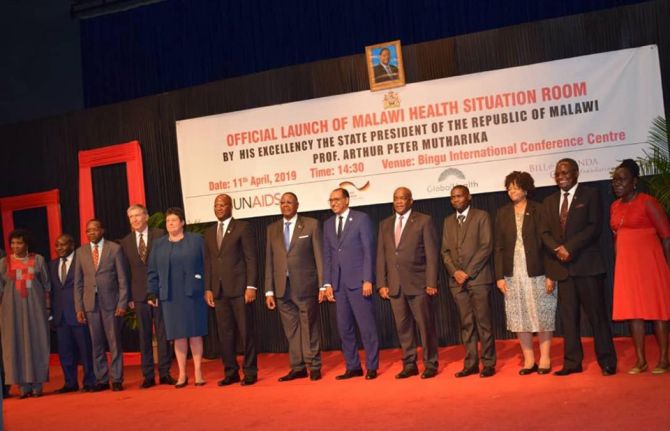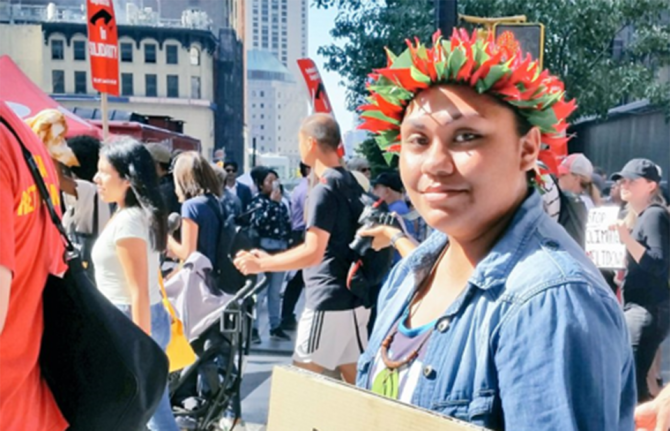
Feature Story
Now the time to act to address climate change: Government and UN leaders gather in Copenhagen
15 December 2009
15 December 2009 15 December 2009The UN climate change summit taking place in Copenhagen marks a global effort to forge a new deal to curb climate change. Secretary-General Ban Ki-moon warned that the world stood at the crossroads between a sustainable future and a path to catastrophe. “Now is the moment to act,” he told a news conference at United Nations Headquarters in New York.
“Seldom in history has a choice been so clear. We can move toward a future of sustainable green growth, or we can continue down the road to ruin. We can act on climate change now, or we can leave it to our children and grandchildren – a debt that can never be paid, that threatens our planet and its people,” he added.
Around 15,000 participants from 192 countries representing governments, UN participants, the business community, and civil society have gathered for the largest international political conference ever held in Denmark.
The final high-level segment of the summit will begin this evening and is due to be attended by around 120 heads of state and government and UN Secretary-General Ban Ki-moon.
The Secretary-General will host a breakfast meeting tomorrow for United Nations system heads. UNAIDS Executive Director Michel Sidibé will be in attendance and will also participate in the High-level Chief Executive Board side event later in the day.
Any meaningful response to climate change must involve a strong participation by civil society and other key stakeholders, including the private sector, working hand-in-hand with national health authorities and the United Nations.
Just as the AIDS response requires all partners from governments to civil society and the private sector to work together—so must we work together to reach goals in addressing climate change.
UNAIDS Executive Director Michel Sidibé
“Just as the AIDS response requires all partners from governments to civil society and the private sector to work together—so must we work together to reach goals in addressing climate change,” said Mr Michel Sidibé.
The partnerships of the AIDS response can serve as models for the types of response that will be required in adapting to climate change-related health, social and economic development challenges.
The response to climate change must ensure that the countries and communities that are most threatened are at the core of all thinking and planning. In the case of AIDS, it was the most affected communities—represented by civil society—that were able to generate the social engagement that galvanized political support, increased financing, improved accountability and tailored specific responses.
During the quest to tackle climate change, much can be learned from the solutions derived by the AIDS response as it has confronted crises and often transformed societies in the process.
Now the time to act to address climate change: Go
Press centre:
It’s now or never in bid to curb climate change, Ban warns (14 December 2009)
UN Leading by Example: Greenhouse Gas Inventory Achieved—Challenge Now To Cut Back Emissions (15 December 2009)
Speeches:
Opening remarks to the United Nations Climate Change Summit Plenary, General Assembly by Secretary-General Ban Ki-moon (22 September 2009)
Feature stories:
Examining links between AIDS and climate change (07 July 2008)
External links:
United Nations Climate change Conference web site
UN Worldwide Campaign on Climate Change
Gateway to the UN System’s Work on Climate Change
Publications:
Climate change and AIDS: A joint working paper
Summary report of the technical meeting on AIDS and climate change
Moving towards a climate neutral UN (UNEP)
Related
 Keeping up the momentum in the global AIDS response
Keeping up the momentum in the global AIDS response

24 April 2019
 Malawi launches its health situation room
Malawi launches its health situation room

12 April 2019

